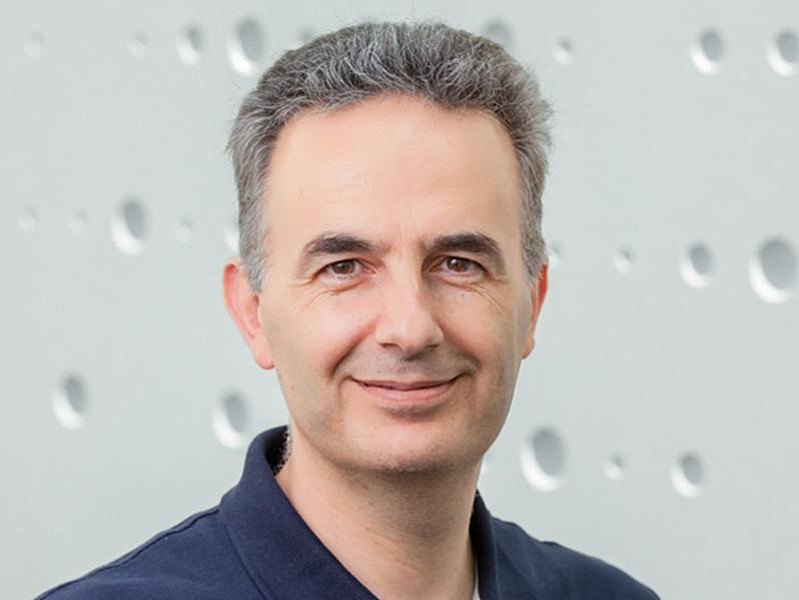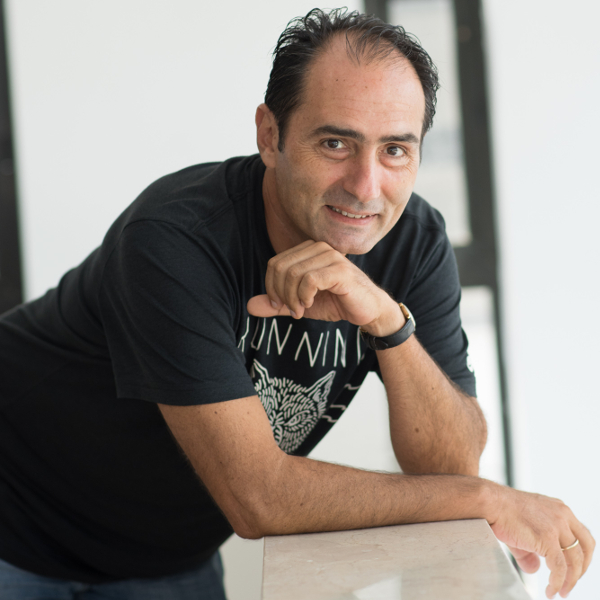Partners

Manolis PasparakisHead of Research Area 3 Environment/organism interactions in aging and age-associated diseases
Professor, Institute for Genetics, Department of Biology, University of Cologne, Germany
Prof. Dr. Manolis Pasparakis is a distinguished molecular biologist renowned for his research on inflammation, cell death, and immune regulation. He serves as a full professor at the Institute for Genetics at the University of Cologne and is a principal investigator at both the Cologne Excellence Cluster on Cellular Stress Responses in Aging-Associated Diseases (CECAD) and the Center for Molecular Medicine Cologne (CMMC). Prof. Pasparakis earned his Diploma in Biology from the University of Athens in 1992 and completed his Ph.D. in 1997, conducting his research at the Hellenic Pasteur Institute under the supervision of Dr. George Kollias. His doctoral work focused on the biology of Tumor Necrosis Factor (TNF) and its receptors in transgenic systems. Following his Ph.D., he undertook postdoctoral training at the Institute for Genetics at the University of Cologne. From 2002 to 2005, he led an independent research group at the European Molecular Biology Laboratory (EMBL) in Monterotondo, Italy. Since 2005, he has held a W3 full professorship at the University of Cologne. Prof. Pasparakis's research aims to elucidate the mechanisms regulating inflammation and the development of inflammatory diseases. His team has significantly contributed to understanding how cell death, particularly necroptosis, acts as a trigger for inflammation in epithelial tissues such as the skin and intestine. Their work has highlighted the roles of TNF receptor signaling, the IKK/NF-κB pathway, and RIP kinases in tissue homeostasis and disease. Recent studies from his laboratory have identified necroptosis of intestinal epithelial cells as a driver of severe colon inflammation resembling human colitis. Similarly, necroptosis of epidermal keratinocytes has been shown to trigger severe skin inflammation. These findings underscore the importance of regulated cell death pathways in maintaining immune homeostasis and their potential as therapeutic targets. Prof. Pasparakis has received numerous accolades, including two European Research Council (ERC) Advanced Grants in 2013 and 2018, recognizing his innovative research in inflammation and cell death. He was elected as a member of the European Molecular Biology Organization (EMBO) in 2008 and serves on the editorial board of EMBO Molecular Medicine. In 2023, he was honored with the CDD Juerg Tschopp Prize and appointed as a Henriette Herz-Scout by the Alexander von Humboldt Foundation. He also serves as the speaker of the Collaborative Research Centre (CRC) 1403 on "Cell Death in Immunity, Inflammation and Disease" at the University of Cologne. His research has significantly advanced the understanding of the interplay between cell death pathways and inflammatory responses, offering insights into potential therapeutic strategies for chronic inflammatory diseases.
E-mail: | pasparakis[at]uni-koeln.de |
|---|---|
Phone: | +49 221 478-84349 |
Fax: | +49 221 478-84350 |

George A. GarinisCoordinator
Professor, University of Crete
GG is a Professor of Genetics at the department of Developmental and Functional Biology at FORTH and the University of Crete. GG is a member of two graduate programmes at the Department of Biology and at the Medical School of the University of Crete. GG is an EMBO Young Investigator and a recipient of ERC consolidator grant (DeFiNER 2014). GG has successfully coordinated an FP7-Marie Curie Training network (HealthAge-ITN 2012-2016) and a National research and training network on Ageing (GenAge) and has participated in several European Training networks e.g. Codeage, Marriage, Chromatin3D. GG has successfully supervised the thesis of 8 PhD students and has published several high-impact publications. He has earned two international patents and is regularly invited as a speaker in international workshops and conferences. ORCID: 0000-0002-3200-5004
Institute of Molecular Biology and Biotechnology (IMBB-FORTH)
E-mail: | |
|---|---|
Phone: | +30 2810391246 |
Fax: | +30 2810391101 |

